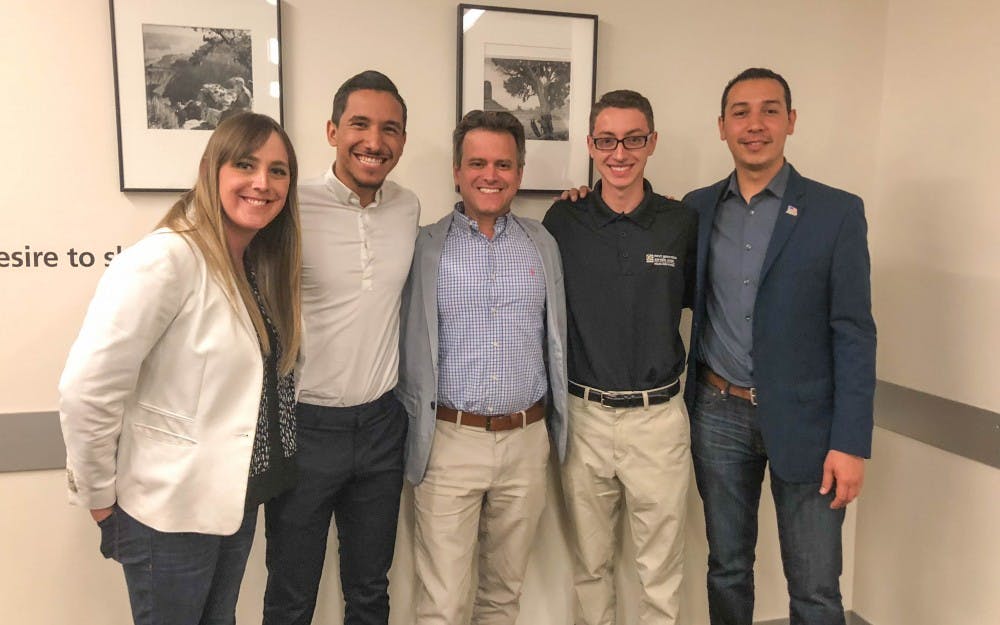After 13,000 people gathered to celebrate Phoenix Pride April 8, the ASU Young Democrats and The Rainbow Coalition continued the festivities by exploring the importance of LGBT+ representation in politics, Pride Week or not.
The Arizona legislature has four open LGBT+ members, but that's "... not enough in terms of where we need to be," said secretary of state candidate Mark Robert Gordon, who is gay. "Representation does mean something."
Gordon was one of several speakers at a LGBTQIA+ Civic Engagement Panel that Young Democrats and The Rainbow Coalition hosted last week, featuring panel discussions about the struggles LGBT+ politicians have overcome and achievements they have reached.
David Huff, the community liaison for Young Democrats and a biological sciences and political science sophomore, said having LGBT+ politicians at ASU talking about their experiences in the legislature is inspiring. Huff, who is openly bisexual, said listening to these political figures helps combat the stigma surrounding his sexual orientation.
"I think it's important to be a part of any minority community, and I think for me, being a part of that community, a lot of us have grown up with a lot of negative pressure on us," Huff said.
But the politicians were not always open with their identities. Tony Navarette, D-Phoenix, said he was fearful of running for public office as a gay man, though now he is one of the four members of the legislature's LGBT caucus, which also includes Rep. Cesar Chavez, D-Phoenix, Sen. Robert Meza, D-Phoenix and Rep. Daniel Hernandez Jr., D-Tucson.
"When there was a seat open in my district, I was actually the Democratic district chair," Navarette said at the April 10 panel. "And then when I realized that there were a lot of folks from outside the community wanting to move in and run, it really impacted me ... so I spoke with leaders of my neighborhood and my family, and made the scary decision to run for public office."
Former Arizona State Senator and U.S. Representative Jim Kolbe titles himself as a "pro-gay Republican." He came out as gay mid-career, making him one of the first openly gay Republicans to serve in Congress. He said his experience coming out was positive as his party was very accepting of his sexual orientation.
"My experience was a positive one," Kolbe said. "I don't think I suffered from any repercussions politically — I served for another 10 years after that in Congress. I was accepted by my colleagues in Congress and didn't have problems back home in Arizona."
He said there are still progress to be made, but the world will never be perfect.
"We certainly haven't accomplished everything — it's not a perfect world out there — but we've come a very long way," Kolbe said. "It's one of those issues you have to deal with. It's certainly not one on the forefront everyday."
Brianna Westbrook, an openly transgender woman running for Arizona State Senate, said the work will not be done until full equality is reached for everyone.
"The way to look at this is that it isn't a sprint — it's a marathon," Westbrook said. "We are a long ways from where we were in the '80s, but we have a lot of progress that needs to be made. I think progress will be made when we elect our first openly LGBTQIA president."
Reach the reporter at cmgiulia@asu.edu or follow @tinamaria_4 on Twitter.
Like The State Press on Facebook and follow @statepress on Twitter.




